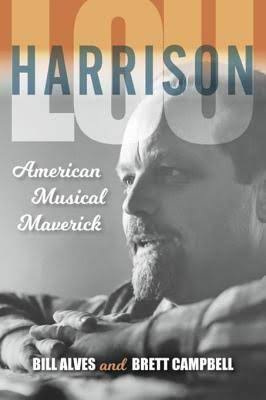Lou Harrison: American Musical Maverick - a review
01 February 2018 Filed in: Tuning
Theory

Lou Harrison: American Musical Maverick
by Bill Alves and Brett Campbell
I really enjoyed reading this book more than 500 pages long, even though, not being an English native speaker, it took me a while to finish it.
It is a very detailed portrait of a great human being besides an excellent musician. I do not mean to diminish his musical value but what I really love about him is his voracious appetite for the many aspects of his life that this book is capable to convey to the reader. I find his boldness highly admirable. Even if he lived for most of his life on the verge of poverty, that did not stop him pursuing his goals and acknowledgments only came late during his life. The brave idea of mixing musical elements coming from different cultures is also outstanding and highly innovative. He is being considered the father of "world music".
As a musician myself I also find marvelous his continuous evolution, being never satisfied of previously mastered techniques. He kept learning new ones at an age when average people think about retirement. That is a very humbling behavior, someone that could rightly be considered a master, willing to become again a student in order to learn new things.
Something that really struck me was his ability to save musical ideas on notebooks that could be used or reused even after decades they were jotted down. Besides being an impressive organizational effort, the idea to adapt old ideas to new situations, developing and adjusting them really appeals to me. I consider it a great exercise and also shows the trust he had in his own talent.
The book is also humorous at times because the main character must have been so too.
I feel the authors were really closed to Lou Harrison and that this book is a labor of love and after reading it, who would not love him too?
I would have titled the book: Lou Harrison: Universal Musical Maverick!
Being myself a "microtonalist", I was attracted to Harrison's music by his use of just intonation tuning systems. I know someone disapprove the application of them to Asian instruments such as the gamelan but what he did was to create something new, out of different traditions, so I do not see it as imperialistic appropriation.
As the authors say, the temperamental Harrison could deal with equal temperaments with much difficulties in all aspects of his life!
This book is very well researched with plenty of music analyses and an extensive glossary of musical terms.
Very much enjoyable!


